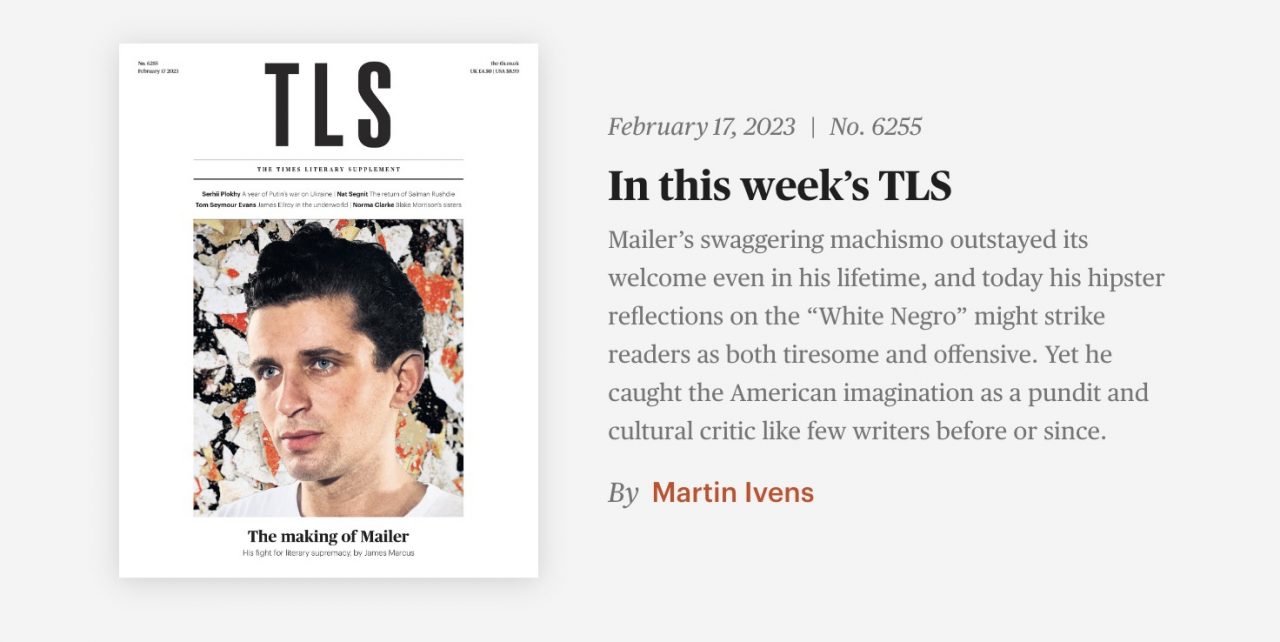Mailer’s swaggering machismo outstayed its welcome even in his lifetime, and today his hipster reflections on the “White Negro” might strike readers as both tiresome and offensive. Yet he caught the American imagination as a pundit and cultural critic like few writers before or since.
By Martin Ivens
Norman Mailer boasted to a television audience in 1971, “I’m going to be the champ until one of you knocks me off”. Gore Vidal had just been given a practical demonstration of this literary ambition. Mailer had head-butted him in the green room before the show. As James Marcus writes in his lead review of books published to coincide with the 100th anniversary of Mailer’s birth, the Brooklyn bruiser took his cue from Ernest Hemingway – “he treated writing and fighting as interchangeable agonies”. Mailer’s swaggering machismo outstayed its welcome even in his lifetime, and today his hipster reflections on the “White Negro” might strike readers as both tiresome and offensive. Yet he caught the American imagination as a pundit and cultural critic like few writers before or since.
Mailer was a literary innovator too. Armies of the Night, which records his participation in a march on the Pentagon in 1967, during the Vietnam War, can be credited with playing an important part in the New Journalism of the 1960s, and even in the autofiction of the twenty–first century – notably for his “illeism”, referring to himself in the third person rather than the first. Marcus sifts through Mailer’s uneven oeuvre to find the gold dust.
James Ellroy, the “demon dog” of crime fiction, was born under a bad sign too. Steven Powell’s biography is full of “appalling” material, says our reviewer, Tom Seymour Evans – the rape and murder of his mother, youthful flirtations with Nazism, shoplifting, burglary and alcoholism. Appropriately, the prose of Love Me Fierce in Danger reads “like gunfire”. I like the account of how Ellroy acquired his signature style. It had nothing to do with literary ambition. Ellroy’s editor told him that LA Confidential needed to lose 25 per cent of its length, so out went adjectives, verbs and conjunctions.
Hemingway and Mailer would surely have been drawn to the David and Goliath struggle in Ukraine. Serhii Plokhy reviews a number of books about Vladimir Putin’s most ambitious attempt so far “to turn the clock of history all the way back to the Russian Empire”. Having failed to browbeat Volodymyr Zelensky, the Ukrainian leader, into a Munich-style surrender at their one personal meeting, Putin was resolved on a swift “police action” to annex the country. The botched operation, however, “turned the most pro-Russian of Ukrainians into the Kremlin’s sworn enemies”.
